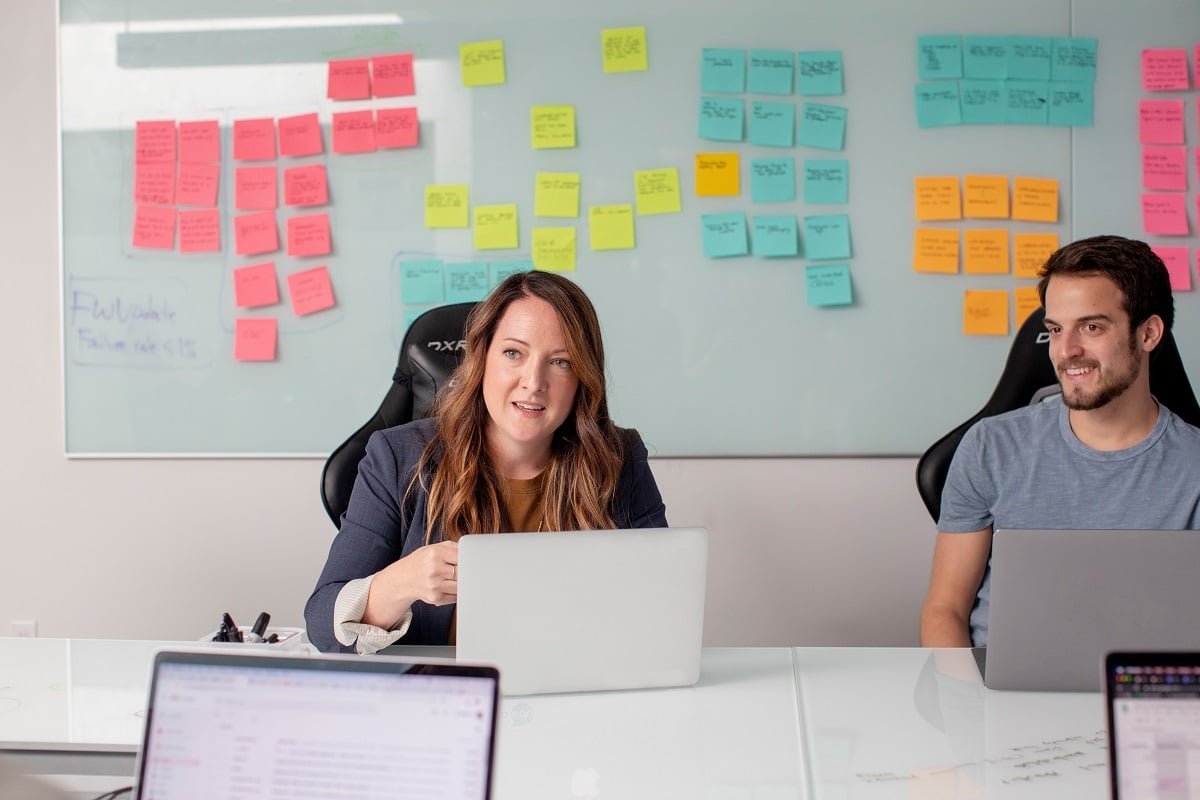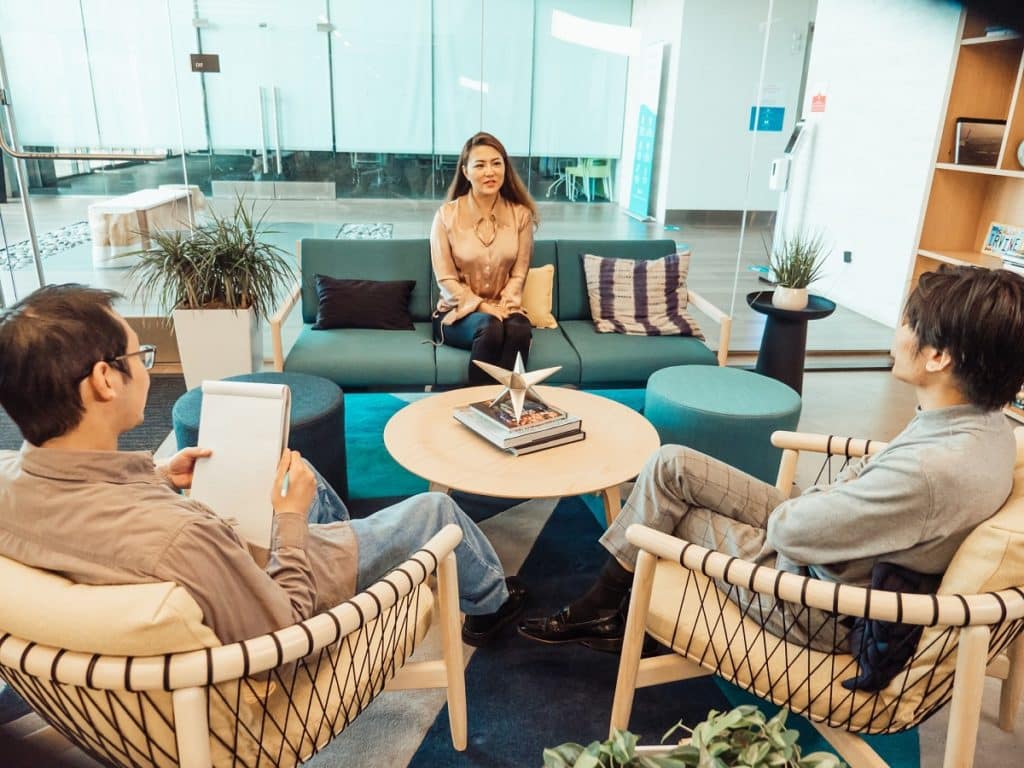
What Is a Panel Interview? – Detailed Explanation
Are you looking for that dream job? Or have you already applied for a job and have since been notified that you have an interview?
You may well have already been through the standard one-on-one interview process with a manager. However, some or other time in your search for employment, you will (most likely) be invited to a panel interview.
Table of Contents
What Exactly Is a Panel Interview?
Similar to a group interview, a panel interview can be defined as an interview conducted by several interviewers (usually 3-6). The interviewers will typically be personnel from different departments of a company or business.
These different representatives pose questions, during a job interview, to a prospective applicant.
Seems simple right? Well, let’s discuss, in more detail, exactly what encompasses a panel interview and what you can expect from a panel interview.
When Will You Most Likely Be Invited to a Panel Interview?
Panel interviews are commonly used throughout most industries, which means it’s quite normal for prospective candidates to be invited to attend a panel interview.
Generally, when there are multiple applicants that need to be interviewed for a single position, a panel interview will be conducted.
However, there are specific industries that are more inclined to use a panel interview over a one-on-one interview.
You can expect to be invited to a panel interview when applying at:
- Government institutions
- Universities and schools
- Law and Accounting firms
- Non-profit organizations
This list is not an exhaustive list, though, and you should still be prepared to be invited to a panel interview with every job application you make.
What Is the Process of a Panel Interview?
Just like in a one-on-one interview, there will be multiple questions that will need to be answered in relation to your skills, experience, and personality in a panel interview.
Each panelist will formulate and ask a set of questions in relation to their particular department.
A panel interview may only be conducted by one or more panelists, while the other panelists observe. However, they may intervene when they require clarity on a question/ answer.
In most instances, each panelist will have a copy of your resume in front of them, allowing them to scrutinize your resume as you answer questions.
You will be given a chance to answer each question as they are posed, or a set of questions will be posed, and you will then be given the opportunity to answer the corresponding questions.
Should you have any questions about the company, you will be given an opportunity to ask the panel, and a representative from the respective department will furnish you with an answer in relation to your question.
At the completion of the panel interview, the panelists will compare your responses to those of other candidates. Each panelist will give their own response and opinion on what they thought about the applicants’ responses.
The applicants whose answers stand out above the rest will be shortlisted. The panel will then make a final decision on which applicant should be employed, and will inform the successful applicant accordingly.
Who Will Form Part of the Panel?
Panel interviews can be comprised of any representative from a company, or consultants that are appointed as a panelist. Panelists will typically consist of representatives from different departments within a company/ business.
The most common people from the respective company/ business to form part of the panel are:
- A manager or a team leader will participate on the panel to assess whether the applicant is compatible with his/her team.
- Human resources representatives will always be on the panel. The Human resources department is responsible for the employment of applicants.
- Future co-workers could be included on the panel to assess the compatibility of the prospective applicant with their team.
- Partners in a firm will participate on the panel and give their vote as to who they feel is best suited for the position.
- Directors of a company may opt to take part in the panel interview. They will give feedback to the board of directors as to which applicant fits the criteria.
Why Are Panel Interviews Preferred?
The dynamic of a one-on-one interview is limited, to say the least. There are countless benefits to incorporating a panel interview into the recruitment process of a company/ business.
Some of the benefits that a panel interview offers are:
-
Reduction In the Time Spent Hiring
The need to schedule multiple one-on-one interviews is eliminated with the use of a single panel interview. Prospective job applicants will be informed of a specific time and date for an interview. No rescheduling or postponements need to be made by the interviewers.
In addition, all the departments will be able to compile and compare the information from all prospective applicants simultaneously.
-
Insight Into Different Perspectives
The dynamic of a panel interview allows multiple interviewers to evaluate the capabilities of a prospective job seeker in one interview.
This allows for multiple opinions/ views of the prospective applicants being able to be discussed at once by the panelists.
-
Applicants Will Be Given a Fair Opportunity
As much as a one-on-one interviewer is not biased or partial to the single interviewer’s preference, a panel interview will ensure that applicants are given a fair opportunity to answer the prospective questions.
Personal preferences and agendas are eliminated in a panel interview. A collective decision will ultimately be made by the panel, not just by one manager.
-
Put the Candidate Under Pressure
Panel interviews have the capability of becoming a hostile environment for candidates. Interviewers will often test the limits of a candidate to test their knowledge and application. An entourage of bombarding questions will reflect the strength of the candidate under pressure.
What Questions Can Be Expected In a Panel Interview?
In order to prepare for a panel interview, you should remember that all interviews are inquisitorial in nature, in order to assess whether you fit the criteria for the job. The challenge is the unknown types of questions to be asked at a panel interview. However, you can try your best to prepare for any questions that come your way.
It should be on every prospective job seeker’s mind as to what kinds of questions a panel interview will have waiting for them.
You can be assured that there are three main areas that panelists will base their questions:
Experience and Skill Set
The position that you are applying for will have its own criteria and specifications that will need to be met. If you’re applying for an entry-level job, there won’t be a heavy expectation for you to have a high skill set.
However, you must remember that there is still a standard level of competence that you will be required to permeate through your answers. The interviewers will expect you to have some knowledge of the basic concepts taught at college.
To test your knowledge and skills, panelists will try to assess what you have to offer to the company/ business.
The type of questions you should anticipate being asked by the panel during an interview are:
- What are your most significant achievements?
- Do you have any specific qualifications?
- Are you planning on studying further?
- Do you have any leadership experience or management skills?
- What are your biggest strengths/weaknesses?
Unfortunately, it is difficult to predict all the questions a panelist may ask you in an interview. In addition, panelists may have some specifically formulated questions to test your knowledge on a particular subject or models that you are expected to be familiar with.
When it comes to the experience that you have acquired, panelists will want to evaluate if your working experience is relevant to the current position being offered, and what exactly the level of experience is that you have achieved.
Your Personality and Work Ethic
As important as it is to have the right qualifications and experience, these skills must be paired with your personality. Every team or work environment has its own dynamic, and for you to be able to fit into that dynamic is imperative for a productive work environment.
As mentioned above, there may be a future co-worker on the interview panel, so prepare to be asked some questions like:
- How do you handle pressure?
- Are you easy to talk to?
- Do you work well in a group?
- What are you passionate about?
Depending on the type of work that you have applied for, some careers require additional overtime and availability at any hour of the night.
For this reason, your prospective manager or team leader will be particularly interested in your work ethic and to what lengths you are prepared to go in order to do the job well.
Expect to be asked questions like:
- Are you willing to work overtime?
- How would you describe your work ethic?
- What would your previous employer say about your work ethic?
- Are you a responsible person?
A tip: when asked questions about your previous employment and what you didn’t like about your job, remember to never bad mouth your previous employer.
Once all the questions have been answered, the panel will review your answers and compare your strengths and weaknesses against other applicants. This will lead them to make a final decision based on which applicant is most suitable for the position.
Prepare for your interview with further interview prep and practice from Job Test Prep.
Sarah is an accomplished educator, researcher and author in the field of testing and assessment. She has worked with various educational institutions and organisations to develop innovative evaluation methods and enhance student learning. Sarah has published numerous articles and books on assessment and learning. Her passion for promoting equity and fairness in the education system fuels her commitment to sharing insights and best practices with educators and policymakers around the world.







